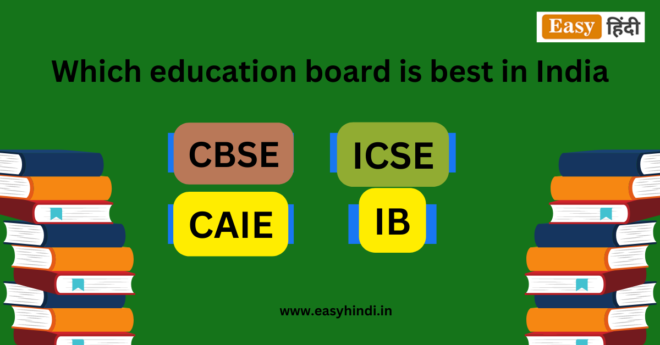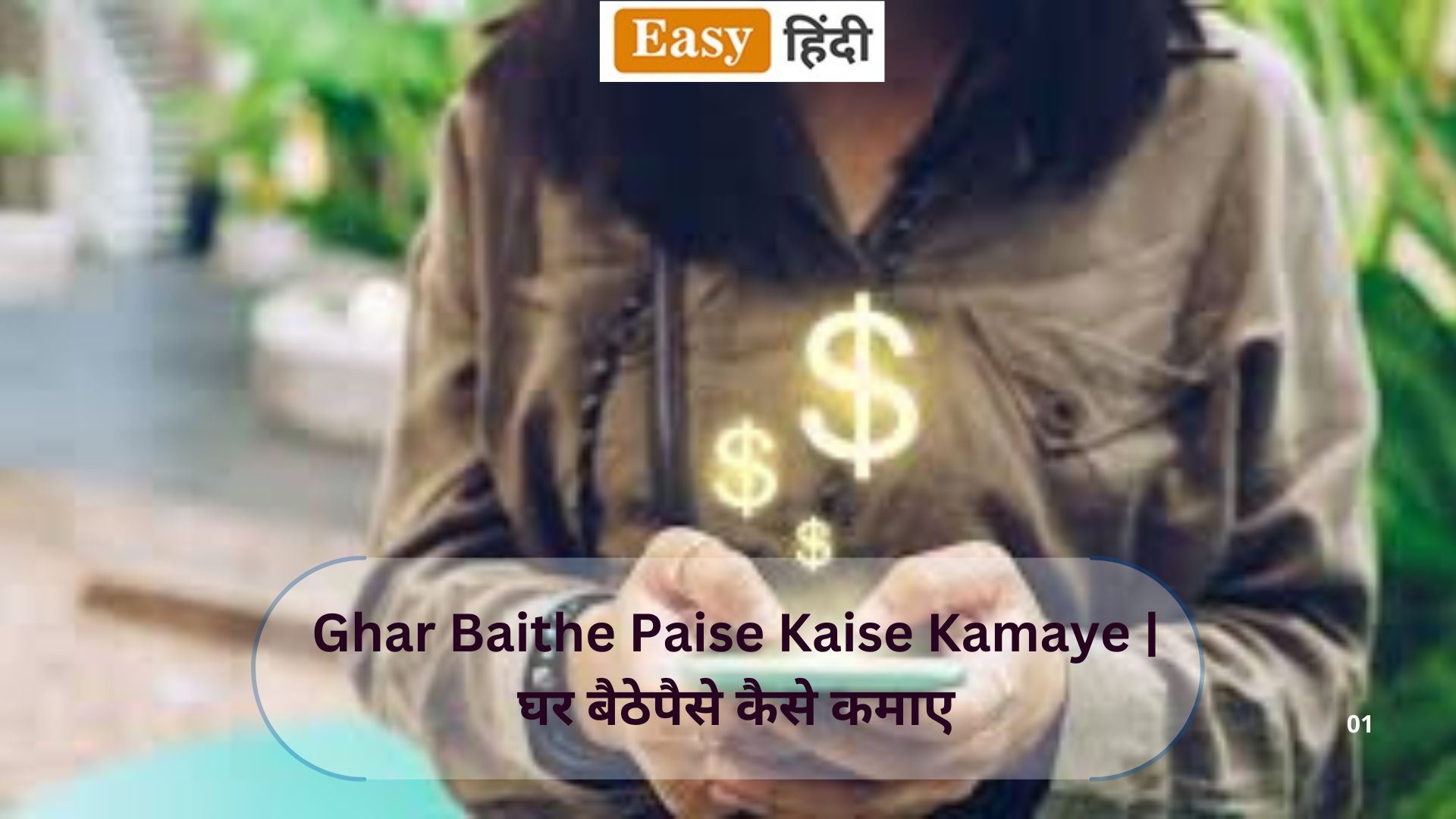India has a diverse and complex education system with multiple education boards that oversee the curriculum and standards of schools and educational institutions. Each education board has its own unique syllabus, examination pattern, and educational goals. The various education boards in India cater to the needs of different segments of society and are designed to provide quality education to students across the country.
This leads to another question about which board is best for education and how to choose the right education board in India.
Education boards in India
In India, there are several education boards that oversee the curriculum and standards of schools and educational institutions. Some of the prominent education boards in India are
Also Read: 10th क्लास उत्तीर्ण छात्रों के लिए छात्रवृत्ति 2023-24
Central Board of Secondary Education (CBSE):
The CBSE is a national board of education that is recognized by the Indian government. It is the most popular board of education in India and follows a curriculum that emphasizes science and mathematics. The board conducts two major exams: the All India Secondary School Examination (AISSE) for Class 10 and the All India Senior School Certificate Examination (AISSCE) for Class 12.
Pros:
- The CBSE curriculum is designed to provide a balanced education that promotes critical thinking, problem-solving, and overall development of the students.
- The CBSE board conducts the Joint Entrance Examination (JEE) and National Eligibility cum Entrance Test (NEET), which are the most popular entrance exams for engineering and medical courses in India.
- The syllabus is recognized by most universities and colleges across the country.
Cons:
- The syllabus is considered to be more theoretical than practical.
- The board focuses on rote learning and memorization, which can hinder the development of critical thinking and problem-solving skills.
- The board has a centralized system, which can lead to delays in the release of results and other administrative processes.
Council for the Indian School Certificate Examinations (CISCE):
The CISCE is a private board of education that is recognized by the Indian government. It offers two programs: the Indian Certificate of Secondary Education (ICSE) for Class 10 and the Indian School Certificate (ISC) for Class 12. The CISCE follows a curriculum that emphasizes the holistic development of students, with a focus on English language and literature.
Pros:
- The CISCE curriculum is designed to promote creativity, independent thinking, and problem-solving skills.
- The board offers a wide range of subjects and electives, which provides students with flexibility in their academic pursuits.
- The board is recognized by many universities and colleges in India and abroad.
Cons:
- The exams conducted by the board are considered to be relatively difficult compared to other boards, which can be challenging for some students.
- The board has a relatively small number of affiliated schools compared to other boards.
- The board’s curriculum is more focused on literature and language, which may not appeal to all students.
State Boards:
Each state in India has its own board of education that is recognized by the respective state government. These boards offer education in the local language and follow a curriculum that is specific to the state. Some of the popular state boards in India include the Maharashtra State Board of Secondary and Higher Secondary Education, the Tamil Nadu State Board of Secondary Education, and the Karnataka Secondary Education Examination Board.
Pros:
- State boards are designed to cater to the specific needs and requirements of each state, which can be beneficial for students who wish to study in their native language or regional culture.
- The syllabus and exam patterns are more flexible and customized according to the needs of the students.
Cons:
- The syllabus and exam patterns may not be recognized by universities and colleges outside the state, which can limit students’ opportunities for higher education.
- The quality of education and resources can vary widely depending on the state and the school.
- The curriculum may not be as comprehensive or well-structured compared to other education boards.
International Boards:
In addition to the national and state boards, there are also international boards of education in India that are recognized by the Indian government. These boards offer education in English and follow a curriculum that is recognized globally. Some of the popular international boards in India include the International Baccalaureate (IB) and the Cambridge Assessment International Education (CAIE).
Pros:
- International boards of education are recognized worldwide, which can make it easier for students to pursue higher education or employment opportunities in other countries.
- International boards of education follow a global curriculum that is designed to prepare students for a globalized world.
- The teaching methods and pedagogy in international boards of education are often innovative and progressive, which can help students develop critical thinking, problem-solving, and other important skills.
- International boards of education often offer a wider range of subjects and electives compared to Indian boards of education, which can allow students to pursue their interests and passions.
Cons:
- Studying in an international board of education can be more expensive compared to studying in an Indian board of education.
- International boards of education may not have a strong focus on Indian culture and history, which can be a disadvantage for students who wish to pursue higher education or employment opportunities in India.
- Students studying in an international board of education may face cultural and linguistic barriers, which can make it difficult for them to integrate into Indian society.
- International boards of education may not be recognized by all Indian universities and colleges, which can limit the options available to students who wish to pursue higher education in India.
Indian Certificate of Secondary Education
The Indian Certificate of Secondary Education (ICSE) is a national board of education in India that is recognized by the Indian government. The ICSE board of education was established in 1958 to provide a comprehensive and holistic education to students in India. The board follows a curriculum that is designed to provide a strong foundation in both academic and co-curricular activities.
The ICSE syllabus is considered to be more rigorous and academic compared to other boards of education in India. It emphasizes the development of strong communication skills, critical thinking, and problem-solving abilities. The board offers a wide range of subjects and electives, which provides students with flexibility in their academic pursuits and allows them to pursue their interests.
Here are the pros and cons of the Indian Certificate of Secondary Education (ICSE):
Pros:
- The ICSE curriculum is designed to provide a comprehensive and holistic education, with a focus on English language and literature, which can help students develop strong communication skills.
- The board offers a wide range of subjects and electives, which provides students with flexibility in their academic pursuits.
- The ICSE syllabus is recognized by many universities and colleges in India and abroad.
- The board places a strong emphasis on practical and application-based learning, which can help students develop problem-solving and critical thinking skills.
- The ICSE exams are considered to be relatively easier compared to the exams conducted by other boards, which can be beneficial for some students.
Cons:
- The exams conducted by the ICSE board are relatively more difficult compared to other boards, which can be challenging for some students.
- The syllabus is considered to be more academic and theoretical, which may not appeal to all students.
National Institute of Open Schooling
NIOS, or the National Institute of Open Schooling, is an Indian board of education that was established by the Ministry of Education in 1989. It provides opportunities for students who are unable to attend regular schools or have dropped out of school to complete their secondary and senior secondary education. NIOS offers open and distance learning programs at the secondary, senior secondary, and vocational levels, as well as academic and vocational courses for out-of-school learners.
NIOS is recognized by the Government of India and is equivalent to other recognized boards of education in India, such as CBSE and ICSE. The curriculum of NIOS is designed to be flexible and allows students to learn at their own pace, without being constrained by the rigid structure of a regular school.
Pros:
- NIOS offers distance education programs and vocational courses for students who are unable to complete their education through the regular mode.
- The board is more flexible in terms of age limits, admission requirements, and exam schedules, which can be beneficial for students who require more time to complete their education.
- NIOS is recognized by many universities and colleges in India and abroad.
Cons:
- NIOS is not as well-known or widely recognized as other education boards in India, which can limit students’ opportunities for higher education.
- The board’s curriculum is less structured compared to other boards, which can be challenging for some students.
- The quality of education offered by NIOS can vary depending on the quality of the study material and teaching.
Also Read: Best French language classes in Mumbai
How to choose right education board in india
Choosing the best education board in India depends on several factors, including your career aspirations, personal preferences, and academic performance. Here are some key factors to consider when choosing an education board in India:
- Future Goals – Consider your future career aspirations and the requirements of higher education programs you may want to pursue. Some boards may have more recognition and acceptance in certain fields or countries, so it is important to choose a board that aligns with your future goals.
- Curriculum – Review the curriculum of each board to see if it matches your learning style, interests, and strengths. Some boards may have a more holistic approach while others may focus more on rote learning or practical applications.
- Affordability – The fees for different education boards can vary significantly, so it is important to factor in the cost of tuition, books, and other associated expenses when making your decision.
- Location – The availability of schools offering a particular education board may vary depending on your location. It is important to consider the accessibility of schools and commuting time.
- Extracurricular activities – Consider the extra-curricular activities offered by each board, as these can play an important role in your personal growth and development.
- Recognition – Check the recognition and acceptance of the education board by universities and employers in India and abroad.
Best Education Board in India
It is difficult to determine the “best” education board in India as each board has its own strengths and weaknesses, and the choice of board largely depends on the individual’s preference and academic goals.
However, the Central Board of Secondary Education (CBSE) is considered to be one of the most popular and widely recognized education boards in India. The best CBSE school in Jaipur and other schools’ curriculum is designed to provide a balanced education that promotes critical thinking, problem-solving, and the overall development of the students. The CBSE board also conducts the Joint Entrance Examination (JEE) and National Eligibility cum Entrance Test (NEET), which are the most popular entrance exams for engineering and medical courses in India.
The Council for the Indian School Certificate Examinations (CISCE) is another popular education board that is known for its comprehensive and holistic approach to education. The board’s curriculum is designed to promote creativity, independent thinking, and problem-solving skills. The board also offers a wide range of subjects and electives, which provides students with flexibility in their academic pursuits.
Ultimately, the choice of education board should depend on the student’s individual needs, goals, and interests. It is recommended that students and parents research the different education boards in India and consult with teachers and education experts before making a decision.





